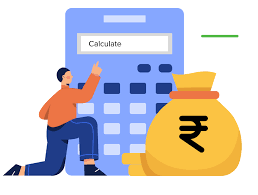In the realm of construction bookkeeping, Direct Costs and Indirect Costs stand as distinct financial components, each contributing to the comprehensive understanding of a project’s financial landscape.
Direct Costs:
Direct costs in construction bookkeeping pertain to expenditures that can be explicitly traced to a specific project or activity.
These costs are directly attributable to the production process and are easily allocable to a particular task, job, or unit of work.
Examples of direct costs in construction encompass raw materials, labor wages for workers directly involved in construction activities, specialized equipment directly utilized on-site, and expenses tied directly to a project’s execution.
Indirect Costs:
Indirect costs, conversely, are expenses that are not tied to a single project in a straightforward manner.
They are often incurred to support the overall construction operation and aren’t immediately linked to a particular task. Indirect costs can be challenging to allocate accurately to individual projects due to their general nature.
Examples of indirect costs include administrative salaries, utilities for the entire construction site, insurance, general site maintenance, and even office supplies that benefit the construction process as a whole.
The distinction difference between direct cost and indirect cost is pivotal for several reasons:
1. Cost Allocation:
Accurately attributing costs helps in gauging the true cost of a project. Direct cost are directly assigned to a project, while indirect cost are distributed among projects based on a rational allocation method.
2. Budgeting Precision:
By differentiating between these two types of costs, construction companies can develop more precise budgets for individual projects, taking into account both direct project-related expenses and overarching indirect operational expenses.
3. Performance Evaluation:
Understanding the allocation of direct and indirect costs aids in evaluating project profitability and efficiency, as well as assessing the overall financial health of the construction operation.
4. Pricing Strategy:
Differentiating it is crucial when establishing pricing for construction services. Neglecting to include all relevant direct and indirect expenses can lead to inadequate pricing, impacting profitability.
For more information visit this side: https://www.incometax.gov.in
In essence, direct costs are the immediately traceable expenses that contribute directly to a construction project, while indirect costs encompass the broader operational expenses that support the construction activities as a whole. Properly segregating and managing both types of costs is essential for maintaining accurate financial records, making informed decisions, and ensuring the fiscal success of construction endeavors.
For further details access our website: https://vibrantfinserv.com

